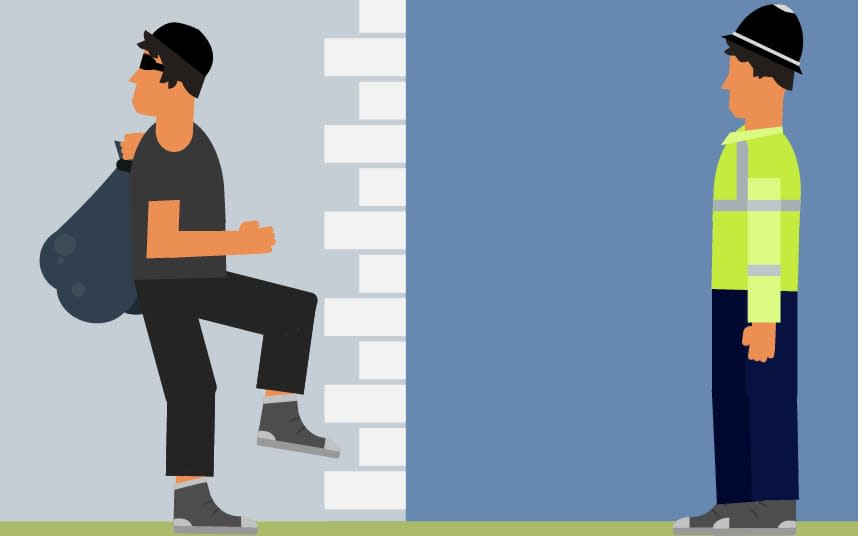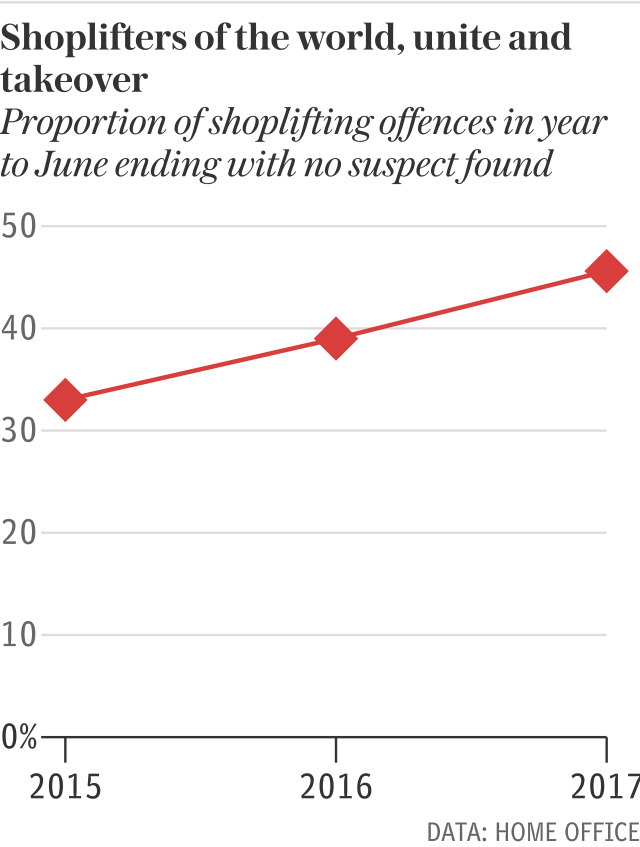Revealed: How likely is it that the police will manage to catch the person who burgles your house?

Nine out of 10 home burglary investigations are closed without a suspect being identified, according to figures from the Home Office.
Of the 44,363 residential burglary cases recorded by police forces across England and Wales between April and June this year, 89.7 per cent ended without a suspect being identified.

In cases like this police deem the crime to have been investigated "as far as reasonably possible" based on the evidence available with the case then closed "pending further investigative opportunities becoming available".
This is the first time that forces have published residential burglary crimes, with the previous crime category for this offence - burglary in a dwelling - not including outer buildings such as sheds and outhouses.
Prior to the new category being introduced, the proportion of dwelling burglaries ending without a suspect being identified had been rising - up to 79.8 per cent in the year to June 2016 from 75.8 per cent in the previous 12-month period.
However, with the category now having been broadened out to include crimes carried out on outer buildings, we now have a better idea of just how unlikely it is the police will be able to catch a burglar who takes something from people's properties.

Police intend to "prioritise" which investigations they concentrate on
Earlier this week a senior Metropolitan Police officer said it was not practical for the force to spend time attempting to catch the perpetrators of some petty crimes due to the demands on the force.
Deputy Assistant Commissioner Mark Simmons said the force had to work with fewer officers and less money, with the Crime Assessment Policy introduced to help prioritise resources.
"Clearly this is not about letting criminals get away with crime, or not investigating the cases we are solving at the moment, if we thought it was, we simply would not do this.
"With the pressure on our resources it is not practical for our officers to spend a considerable amount of time looking into something where for example, the value of damage or the item stolen is under £50, or the victim is not willing to support a prosecution.
"We need our officers to be focused on serious crime and cases where there is a realistic chance that we will be able to solve it."
In response to this, ex-Met detective chief inspector Mick Neville told The Sun: "This is justice dreamed up by bean counters in shiny suit land.
"No consideration is being given to victims. The new principles will focus police attention on easy crimes where there is a known suspect.
"Few professional criminals target people who know them, so the worst villains will evade justice. Not investigating high volume crimes like shoplifting with a loss of under £50 will give junkies a green light to thieve."
The figures from the ONS already show that there has been a large increase in the number of instances in which police have failed to identify shoplifters.
In the year to June 2015 one in three cases ended without a suspect being identified, but in the year to June 2017 this figure had risen to 45.6 per cent of the 375,105 settled cases.

Which crimes are police forces least likely to solve?
There are a number of other high volume crimes with extremely low probabilities for suspects being identified.
Of crimes with more than 40,000 recorded resolutions in the year to June 2017, police were least likely to catch the perpetrators of theft from vehicle crimes.
As many as 94.3 per cent of these crimes reached a dead end in the 12-months to June.
Interfering with a motor vehicle (91.8 per cent) and bicycle thefts (89.8 per cent) made up the rest of the top three, with residential burglaries coming in a fourth.
Police forces are far more likely to catch criminals when it comes to violent crimes such as assault and harassment, with cases of these crimes among the fastest risers nationwide.


 Yahoo News
Yahoo News 
